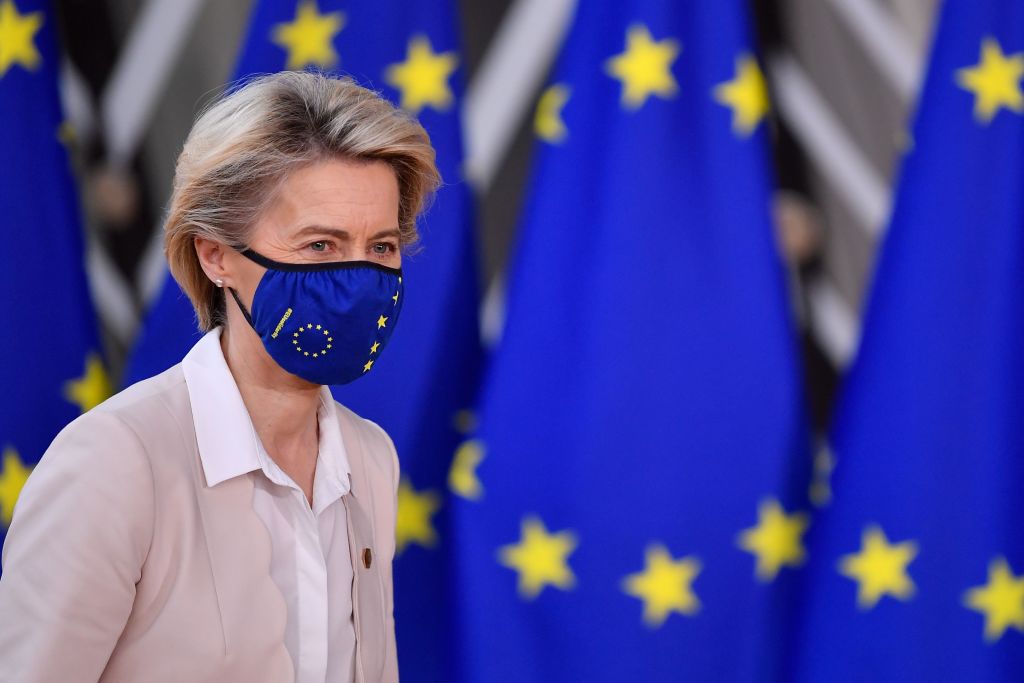The announcement that Brexit negotiations are set to continue will no doubt alarm Brexiteers who fear compromise, sell-out and fudge. In fairness to Brussels however, they set out their stall early on and stuck to the script. The EU is unwilling – as they see it – to let Britain have its cake and eat it, by having large access to the EU’s market while not being a member or leaving the club and not ‘paying a price’. This might explain what could otherwise be seen as an unduly recalcitrant attitude. It also explains why any deal which the EU agrees to is likely to be on its terms.
The level playing field has proved a major source of disagreement. While it is suggested that Brussels might drop the ‘ratchet clause’ – which would keep Britain aligned with the EU via Court of Justice of the European Union oversight – it seems Brussels might be going for a softer version via a mechanism whereby ‘divergence’ would invoke ‘rebalancing’ measures. This might be described as a level playing field by the back door. It isn’t that the EU wants no deal – pragmatic Germany certainly does not – but that any deal they agree to will likely be one where Britain comes second.
Rumours are circulating that the EU wants measures to be ‘cross-retaliatory’, which means a divergence in one sector could invite ‘rebalancing’ measures in others. This is before we get to contingency measures Brussels has offered in the event of no deal, including ‘reciprocal’ access so EU fishing boats would continue operating in British waters. Such positions and suggestions might look self-defeating for Brussels, liable to either lead to no deal – potentially harming the EU as much as Britain – or setting up a future of hostility and distrust.
But the EU has every incentive to make Britain pay for Brexit lest other restless member states get ideas that leaving the club is a smart option. How would it look to Hungary and Poland – who Germany recently had to compromise with over a rule of law mechanism – if the UK was perceived to do well out of Brexit? Data from Redfield and Wilton Strategies on behalf of Euronews found that 45 per cent of Italians and 38 per cent of French people would be more likely to support leaving the EU if the UK is in a good state in five years. Non-Eurozone states like Hungary and Poland could extricate themselves from the EU even more easily than France and Italy could.
It is not just EU states which Brussels has to worry about either. In Norway, which is a member of the European Free Trade Association (EFTA), the (Eurosceptic) Center Party is topping polls ahead of the next election, with a message that Norway needs an even looser arrangement with Brussels. Fellow EFTA state Switzerland recently signed a services deal with Britain, while Norway signed a fisheries agreement with the UK. The two EFTA states will be watching Brexit closely, potentially to see whether they could gain from moving further from the EU’s pull.
The truth is that with restless member states on its eastern and southern peripheries, semi-detached Nordic states, and scepticism among even EFTA countries, the EU has every incentive to demonstrate that leaving its gravitational field has negative consequences. There was always an element of wishful thinking and denialism in the British belief that the EU would simply act in good faith. Politics was always going to trump economics.
When the EU speaks to London, it is also speaking to Budapest, Rome and Warsaw. No deal offers tremendous latitude for Britain to navigate its post-pandemic reality. Of course, a genuinely good deal between the EU and the UK would be in everyone’s interest. But, if you cannot stomach anything on the menu, it is better to order nothing at all. Given the EU’s own precarious situation – the need to appease eastern Europe, prop up Club Med and keep the Frugals sweet – was Brussels ever really going to offer Britain a good deal?






Comments